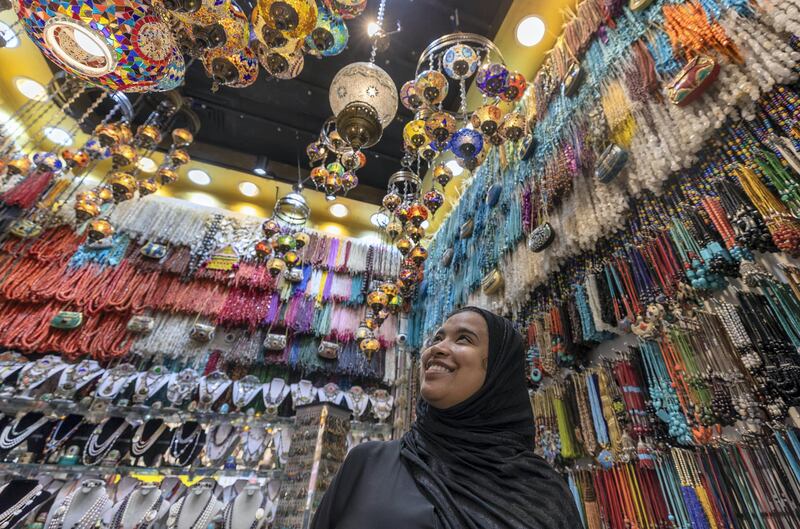It took me two weeks to wean myself off my morning cup of coffee when I was preparing for Ramadan. I had the headaches, the dip in energy and a small case of the shakes. But when Eid dawns this week, I'm looking forward to my first, long-awaited morning encounter with a hot cappuccino. My only disappointment will be that my local coffeeshop doesn't sprinkle cocoa on its froth with the words "Eid Mubarak", as they might do in the Middle East.
Eid in a country where most people are going about their normal daily business still offers all the usual pleasures of food, family and festivity but it can also have a sense of the surreal.
I’ll be waving hello to my neighbours who are setting off to work in their suits while I am bedecked in Bollywood-style sparkles, my hands decorated with henna, tottering in high heels to give them a box of halwa.
Work, school and daily life don't stop in a secular society. There is no nationwide celebration as there is in the UAE, and so Eid in the UK is much more about what you make it. You have to be the party.
Things are slowly changing. A handful of retailers offer Eid ranges, such as supermarkets. In areas of the UK where there are high numbers of Muslims, shopping centres are starting to host Eid festivals. To their delight, footfall spikes during these times. Muslim families are starting to see going out as a new way of celebrating Eid, rather than spending the day at home receiving visitors. They might be out and about in shopping centres or visiting Eid melas in parks dotted around the country. With the clement summer weather, hundreds gather at outdoor and indoor Eid prayers all across across England’s green and pleasant land.
Over the last decade, an awareness of Eid as an important festival has grown in the workplace. What was once little-known in secular society is now commonly understood. That means taking time off work is simpler. Of course, the uncertainty over the moon sighting and which day Eid falls on can lead to frantic last-minute emails to bosses to request time off.
Then there are the moon sighting disputes over whether it is Eid or not. In a globalised world in which science can accurately predict when and where a new moon will rise, deciding when Ramadan is actually over is still a contentious issue.
It is particularly fraught in a country like the UK, where the new moon is rarely visible. But this year, the unheard of is happening and a new moon will be seen. This means moon sighting gatherings are being organised to spot the crescent. I’ll be part of the crowds to experience something I have never done before.
Eid is one day of joy but it doesn't whitewash the problems of daily life. The festivities can make it easy to forget the struggles and lessons of the month. There are the obvious ones around food wastage but we should also not forget about poverty on our doorsteps.
And this year, mental health awareness week fell during Ramadan, a reminder of the toll of both physical and psychological illnesses. The lack of food and drink, and the emotional and physical challenges of the holy month, can put undue stress on those fasting. That is before we even start to address questions such as how or whether people with eating disorders should observe Ramadan, or what impact loneliness and isolation have during a month traditionally spent with friends and family. In fact, loneliness at Eid is a huge issue for many who might be far from their families or for converts who don’t yet have a social structure. This is especially true in a country where the majority of people are not celebrating. You can't step out of your door to soak up the atmosphere.
Another reality for those observing Eid in Britain is that Islamophobia continues during Ramadan. It's hard not to worry about this when Boris Johnson, the favourite to become the country's next prime minister, who describes Muslim women in niqabs as "letterboxes". Then there is the mistreatment of Muslims in countries such as Myanmar, China and India.
This mixture of huge worries and small pleasures is what best characterises Eid. The day is one of celebration and joy, of togetherness and levity, and it is a much-needed tonic against the backdrop of personal and community struggles. So feel free to offer me an invigorating cappuccino to face the challenges head-on. A white chocolate chip cookie wouldn’t go amiss either.
Shelina Janmohamed is the author of Love in a Headscarf and Generation M: Young Muslims Changing the World





